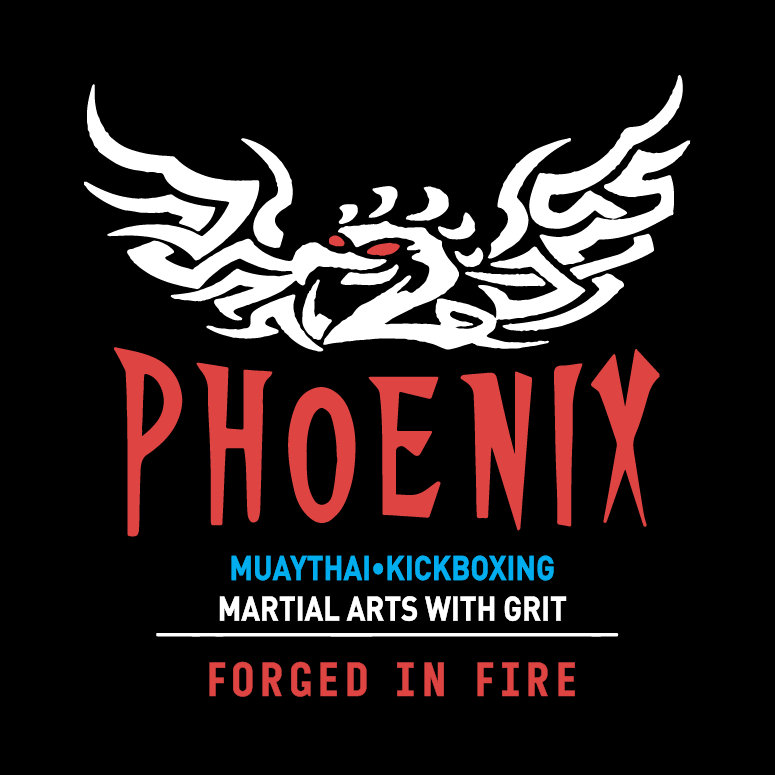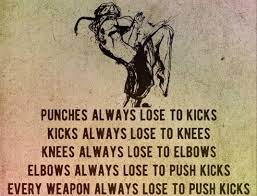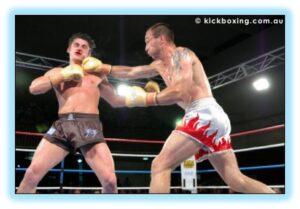Your physiology and psychology work hand in hand every moment of your life. This article is a simple guide extracted from the Phoenix Fight Team Booklet to give you a start in considering the critical importance of psychological development for preparing for the demands of competition and training. A topic you should read more about, do self analyses and educate your self to discover what works for you. For peak performance you need to improve your mental strength for competition, training and be prepared for the event. You will be anxious, you will be nervous, you will stress and worry but you can control this, manage it and use it to your advantage.
Overall Training elements – to be good at any sport you need to improve your:
- Your discipline and purpose.
- Individual skills
- Fitness & conditioning
- Psychological approach
- Personal character
- Teamwork
- Your mood and character
- YOU MUST BACK YOURSELF
4 key aspects of Mental strength for peak performance:
- Breathing
- Visualisation
- Key Words
- Practice
Breathing – If you don’t breath, you die. How you breath effects your physiology dramatically. It effects your physical and mental performance more than anything else. When your heart rate goes up, when you are preparing for action you need to keep your breathing under control. Breathing needs to be deep, controlled and to the stomach – out of the high chest! Breath in cycles, in – hold – out – hold and breath slow for a few minutes. Breath during training and learn to focus on it more than even your technique.
Nervousness, anxiety, stress, panic, concentration, speed, power, recovery, alertness, awareness, reactions and confidence are all directly affected by your breathing. Practice breathing in all training, before class, in warm up’s, in drills and in sparring. Incorporate the stress you feel and incorporate ways to control your breathing.
Being out of breath scares everyone, pushing yourself hurts and training at your anaerobic threshold is painful, competition at it is scary and many shy away from this. To better prepare for this likely eventuality – train your breathing, experience the pain and accept it as part of your training or competition. Correct breathing can delay your threshold, help you deal with it and help recover faster and allow you to keep a positive mind set and concentrate on competition through with a knowledge that you will recover. Focus on your breathing and stay positive as it is a normal part of peak performance. Let your opponent worry about it and stress about it and use it against them.
Practice breathing in training. When anxious breath, when nervous breath. Have a method and take your time for a few deep controlled breaths. Breath in competition like you breath in training. Breath to stay calm and breath keep your body fueled for action.
The nose is for breathing, the mouth is for eating. Simple but takes practice. Alwasy think how you are breathing when you train, run, swim, hit pads, all the time.
Visualisation – trains the mind and the application of your mind in conjunction with your skills and conditioning. Visualisation is a skill that requires practice regularly – competitors should practice every day they train as part of their training. Spend 20-30 minutes running through the performance of your skills in your mind every week, every class before training for a few minutes. Practice rehearsing competitions, staying aware, combinations, scenarios, play out your competition and picture yourself performing how you want to. Practice what you want to do and how you want to do it. Picture each round and if your mind strays or plays negative images replay it until you are happy with it – it is your mind, control it. Stop all negative images and thoughts and focus on training your mind to believe in yourself.
Mental strength is just the confidence to believe you can do it.
To incorporate visualisation into physical training practice running scenarios in your mind as you do the physical motion. This works well in shadow sparring and individual bag work however it is important to remember it is mental training not physical and does not need to be a workout. Shadow spa rounds and competitions, practice winning. Practice getting in and out of trouble.
Always train variables and back your visualisations with ‘real training’.
Visualise fear, pain, anger and emotions that effect your train as well. Incorporate as much reality and challenges as you can and with yourself belief, overcome them.
Key words – (self talk) are phrases and inspire you, to keep you focused and the in a positive state. The purpose of key words is to assist you stay positive and incorporate positive emotional feelings into your competition. Key words should recall positive emotions, beliefs, goals and desires. They should assist you in controlling your emotions under pressure, keep you motivated and help you focus on achieving success. The right words at the right times can recall positive emotions and relive positive thoughts and times and also put you in the mind set required to help get re-focused and re-motivated. They also are useful for bringing out pre trained strategies and actions. Simple words can direct physical motion and key phrases can recall emotions.
Key words are only useful if they are yours. They don’t need to make sense to anyone else they just need to be understood by you, practiced and used to help inspire you when required. Leading up to a competition, before a competition, in the competition and after the competition.
Practice – Everything requires constant practice and mindfulness. Practice under no stress and build your practice into real stressful situations. It will not work if you wait until competition day and will only work if you practice.
Fears that effect performance. Be aware of you and practice working through the fears that will be there all the time.
- Failure
- Embarrassment
- What other people think
- Injury or pain
- Self-image
- Unrealistic expectations (read my complete article on unrealistic expectations)
- Worried you are not ready and not backing your self.
Win at all costs and other limited focused goals – limited goals and win at all costs mind sets might drive you and keep you positive but they are fragile if they are not backed up by regular psychological training. Kickboxing/Muay Thai is a tough sport in a chaotic environment with an opponent focused on defeating you and judges’ scoring that is subjective and variable. These variables need to be incorporated into your training. Win at all costs mind sets need to be built on training yourself to believe this is truly based on your skills, strategy, physiological preparation and self-belief. Putting a win at all costs attitude onto yourself is a lot of pressure that if not channeled correctly in a positive direction can lead to a quick down fall and post-competition depression and self -esteem issues. You can believe you will win no matter what and train hard in all areas of your training and have no doubt you have done everything to win but what is important is that you believe in the competition and if you are behind that you still can win and want to win because you have prepared for this.
Conclusion – psychological training is a critical element to successful performance. Learning and practicing skills to improve your mental approach to competition can dramatically improve your ability to perform in difficult situations. Being positive, believing in yourself at all times and training yourself to breath, visualise overcoming difficulties and utilising key words can assist you in progressing towards your goals in a positive way.


